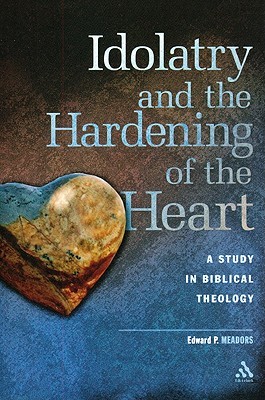
- We will send in 10–14 business days.
- Author: Edward P Meadors
- Publisher: CONTINNUUM 3PL
- ISBN-10: 056702573X
- ISBN-13: 9780567025739
- Format: 15.4 x 23.1 x 1.3 cm, softcover
- Language: English
- SAVE -10% with code: EXTRA
Reviews
Description
The purpose of this book is to provide a biblical, theological answer to Isaiah's question: Why, O Lord, do you cause us to stray from your ways, and harden our heart from fearing you? Transparently, the biblical answer is pervasive, explicit, easy to understand, and interrelated to every major biblical theme. The hardening of the heart is quite simply God's disciplinary punishment for the specific sin of idolatry.
Meadors' book is an exercise in biblical theology. Beginning in the Hebrew Bible the hardened heart finds rescue in the new covenant promises that Isaiah, Jeremiah, Ezekiel, and Hosea prophesy. In these prohecies God promises to remove Israel's idols, cleanse the people, anoint them with God's spirit, write God's law upon their hearts, and turn the people's hearts of stone into hearts of flesh. The New Testament tells how Jesus of Nazareth activates these promises and brings them into effect in the lives of those who respond to him in faith. Paul preaches this message as well, and the book of Revelation applies this message to the historical context of the seven churches of Asia Minor, who lived with the agonizing temptation to compromise with the idolatry-laden Roman emperor cult. Meadors examines the biblical rationale for idolatry and the hardening of the heart as it unfolds in specific passages--Lev. 26, Dt. 29, Ps. 115, 135--and examines the phenomenon through the rest of the Hebrew Bible, the Gospels, the letters of Paul, and Revelation.
EXTRA 10 % discount with code: EXTRA
The promotion ends in 21d.00:33:29
The discount code is valid when purchasing from 10 €. Discounts do not stack.
- Author: Edward P Meadors
- Publisher: CONTINNUUM 3PL
- ISBN-10: 056702573X
- ISBN-13: 9780567025739
- Format: 15.4 x 23.1 x 1.3 cm, softcover
- Language: English English
The purpose of this book is to provide a biblical, theological answer to Isaiah's question: Why, O Lord, do you cause us to stray from your ways, and harden our heart from fearing you? Transparently, the biblical answer is pervasive, explicit, easy to understand, and interrelated to every major biblical theme. The hardening of the heart is quite simply God's disciplinary punishment for the specific sin of idolatry.
Meadors' book is an exercise in biblical theology. Beginning in the Hebrew Bible the hardened heart finds rescue in the new covenant promises that Isaiah, Jeremiah, Ezekiel, and Hosea prophesy. In these prohecies God promises to remove Israel's idols, cleanse the people, anoint them with God's spirit, write God's law upon their hearts, and turn the people's hearts of stone into hearts of flesh. The New Testament tells how Jesus of Nazareth activates these promises and brings them into effect in the lives of those who respond to him in faith. Paul preaches this message as well, and the book of Revelation applies this message to the historical context of the seven churches of Asia Minor, who lived with the agonizing temptation to compromise with the idolatry-laden Roman emperor cult. Meadors examines the biblical rationale for idolatry and the hardening of the heart as it unfolds in specific passages--Lev. 26, Dt. 29, Ps. 115, 135--and examines the phenomenon through the rest of the Hebrew Bible, the Gospels, the letters of Paul, and Revelation.


Reviews